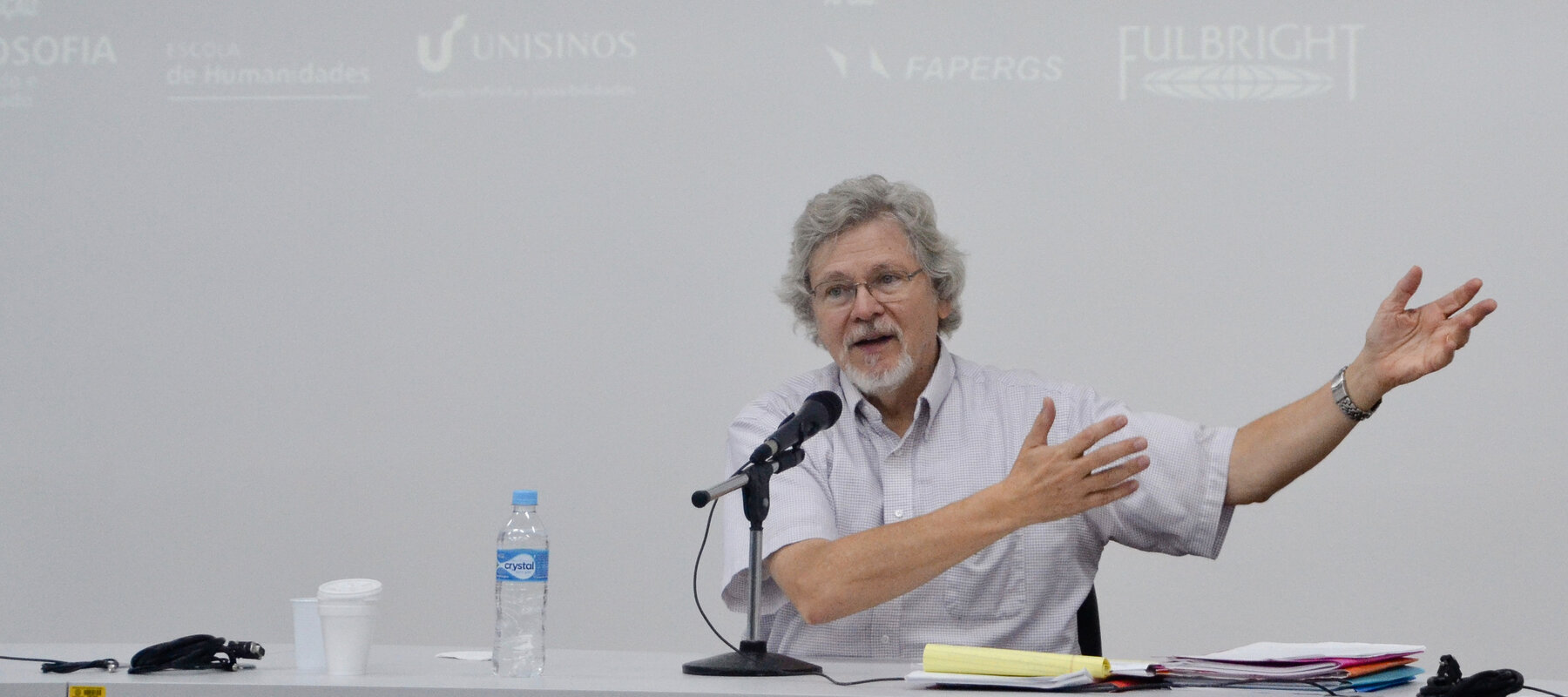Lehigh considers itself a global university, and some Lehigh faculty have had the opportunity to share their knowledge across the globe through Fulbright awards.
The Fulbright Scholar Program is a prestigious award that recognizes thought leaders on the national level and offers other countries the opportunity to host these leaders and learn from them.
This past April, Dr. Lloyd Steffen (above), professor of religion studies and University Chaplain, was accepted as a Fulbright Specialist. Those chosen for this prestigious award join a roster of specialists in a field, and colleges, universities and other institutions around the world offer to host the expert in order to expand their own knowledge. Fulbright Specialists travel to their host for short-term stays, between two and six weeks, and will remain on the roster for three years.
In October, Steffen traveled to Brazil for two weeks to lead a seminar on the topic of “Moral Obligation and Punishment.” This is a relevant issue in Brazil because the country is facing concerns with drug crime punishments and the overall state of prisons. In addition to his other roles at the university, Steffen also leads the Lehigh Prison Project, which provides students the opportunity to visit the Northampton County Prison in Easton, Pennsylvania, to tutor lowest security inmates who are working on high school equivalency preparation.
Steffen visited two universities during his stay in Brazil and taught a 3.5 hour seminar for four days to graduate and law students at each institution. At Lehigh, Steffen teaches undergraduate students, but he said he enjoyed the challenge of teaching graduate students, who brought different kinds of experiences to the seminar and posed professional questions. His seminars included doctors, lawyers and philosophy professors.
“The students were eager to learn. They kept the conversation going and had a lot of questions,” Steffen said. “It exposed me to the differences between what goes on in law and medicine (in Brazil) and what goes on in the United States.”
Steffen said he wouldn’t be a Fulbright Specialist if it weren’t for the help of Bill Hunter, director of fellowship advising and UN programs, who “pestered” him to apply for the award.
Part of Hunter’s job is to identify and recruit students and faculty to apply for nationally competitive scholarships and fellowships. Hunter helps review individuals’ applications and offers comments and suggestions to help strengthen the application. Four students won these prestigious awards last year, and 10 are applying this year. All 13 faculty members who applied to Fulbright through Hunter’s office have won.
Hunter said applying to Fulbright hasn’t always been part of Lehigh’s culture, but he hopes that once faculty see their peers winning, they will be encouraged to apply as well.
Dr. Israel Wachs, professor of chemical and biomolecular engineering, was awarded his second Fulbright Faculty Research award in January of this year to do research in Israel. His first Fulbright award was in 2005, when he taught a short course at several universities in Argentina.
With his latest award, Wachs will teach a course on characterization of catalytic materials in Israel. Unlike Steffen’s Specialist award, which is for short-term visits, Wachs will travel to Israel for six months, four of which are funded by Fulbright. He will cover the extra two months of expenses himself. Wachs’ primary goal is to share knowledge with his colleagues in Israel and do research together, and he hopes to develop a relationship between Lehigh and the Israel Institute of Technology and bring high quality students to the United States.
“Each country has different resources and different approaches. It’s a different way of looking at things than our American perspective,” Wachs said. “Any place you go you get exposed to the culture. I look forward to letting that seep in and getting a perspective on the situation there (in Israel) on the ground.”
